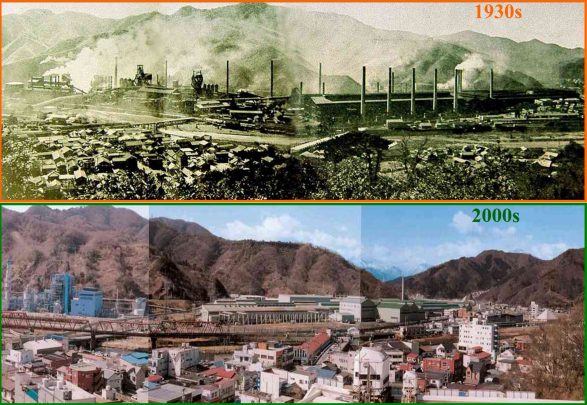
Crisis thinking in regional Japan – the case study of Kamaishi City
- 4 March 2020
- 5:00pm – 6.30pm
- Daiwa Foundation Japan House, 13 - 14 Cornwall Terrace, London NW1 4QP. Nearest tube: Baker Street
- http://dajf.org.uk/event/crisis-thinking-in-regional-japan-the-case-study-of-kamaishi-city
- 020 7486 4348
- events@dajf.org.uk
- Tweet
In the 1960s and 70s, Kamaishi was as a thriving city with a population of around 80,000 people—home to the Kamaishi Steel Works, deep-sea fishing operations, and Japan’s strongest rugby team. However, the subsequent contraction of the steel works and waning of the deep-sea fishing industry led to a steep decline in population. Today, Kamaishi is a small rural city with a population of 36,000 facing a chronic crisis of depopulation. The March 2011 tsunami and Great East Japan Earthquake brought new urgency to the issues of chronic depopulation and economic restructuring to Kamaishi and the surrounding areas.
Kamaishi provides a helpful case study for examining how regional communities have attempted to respond to the key crises facing all of regional post-war Japan: depopulation, industrial restructuring and natural disasters. In this lecture, Dr Naofumi Nakamura will use Kamaishi as a case study to investigate crisis thinking in post-war regional Japan – the policies and actions of both the public and private sectors in their pursuit to find solutions to depopulation, economic restructuring, and disaster readiness.
Music Performance: members of the SOAS Min’yō Group have learnt two folk songs from Kamaishi, which they will perform at this event: “Kamaishi Hama Uta” and “Kamaishi Jinku”.
This event is organised by SOAS, University of London. For bookings, please click on this link.
More information can be found on the SOAS website.
About the contributors
Dr Naofumi Nakamura
Dr Naofumi Nakamura is Professor in Business and Economic History at the Institute of Social Science, the University of Tokyo. He obtained a Ph.D. in history from Kyushu University in 1997. He has been conducting a general community survey at Kamaishi City, Iwate Prefecture, from 2006 to present.
Dr Helen Macnaughtan
Dr Helen Macnaughtan (Chair) joined SOAS in 2002 and lectures on economic, business, labour and HRM issues in contemporary Japan (and within a broader East Asian context). Her research interests focus on a broad range of topics relating to gender issues and employment in Japan.
Book your place.
